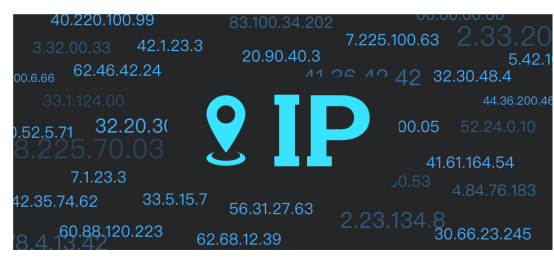 Language
Language

1. Overview of static IP addresses
A static IP address is an IP address that remains unchanged over a period of time. Compared with dynamic IP addresses, static IP addresses will not change due to device restarts, network reconnection, etc. This makes static IP addresses perform better in certain application scenarios that require stable and reliable network connections.
2. Application of static IP addresses in home network environment
In a home network environment, static IP addresses are mainly used for the following aspects:
Network printer: Assigning a static IP address to a network printer can ensure the stability of the printer in the network and facilitate family members to share printing resources.
Network storage device: Assigning a static IP address to a network storage device (such as NAS) can facilitate users to access and manage files in the storage device on the network.
Smart Home Devices: Smart home devices (such as smart light bulbs, smart sockets, etc.) often need to communicate with other devices on the home network. Assigning static IP addresses to these devices ensures that communication between them is more stable and reliable.
3. Application of static IP addresses in enterprise network environment
In enterprise network environments, static IP addresses are more widely used, mainly including the following aspects:
Server management:
Enterprise servers usually need to provide stable network services, such as website access, database queries, etc. Assigning a static IP address to the server ensures that clients can always access server resources accurately.
Remote access and control:
Corporate employees may need to remotely access internal company resources, such as file servers, monitoring systems, etc. Assigning static IP addresses to these resources can facilitate remote access and control by employees.
Network device configuration:
Network devices such as routers and switches in the enterprise network need to be configured and managed. Assigning static IP addresses to these devices can facilitate remote configuration and management operations by network administrators.

4. Application of static IP addresses in the field of Internet of Things (IoT)
With the continuous development of Internet of Things technology, more and more devices need to be connected to the Internet for data transmission and communication. The application of static IP addresses in the field of Internet of Things is mainly reflected in the following aspects:
Device positioning and tracking :
IoT devices often require positioning and tracking. Assigning a static IP address to a device can easily locate and track the device, improving the efficiency of device management.
Data transmission stability :
IoT devices need to transmit data in real time, such as sensor data, surveillance videos, etc. Using static IP addresses ensures the stability and reliability of data transmission.
Remote maintenance and upgrades:
IoT devices may be distributed over a wide geographical range, and remote maintenance and upgrades are an important part of device management. Assigning a static IP address to the device facilitates remote maintenance and upgrade operations.
5. Application of static IP addresses in cloud services and hosting services
Cloud service and hosting service providers often need to provide customers with a stable and reliable network environment. The application of static IP addresses in such services mainly includes the following aspects:
Virtual hosts and cloud servers :
Assigning static IP addresses to virtual hosts and cloud servers ensures that customers can always accurately access resources hosted in the cloud.
Load balancing:
Load balancing technology requires a stable IP address as an access entrance. Assigning static IP addresses to load balancing devices can improve service availability and scalability.
DNS resolution:
Domain name resolution system (DNS) needs to resolve domain names into corresponding IP addresses. Using a static IP address ensures the accuracy and stability of DNS resolution.
6. Summary
Static IP addresses are widely used in application scenarios such as home networks, enterprise networks, Internet of Things, and cloud services due to their stability and predictability.
With the continuous development and innovation of network technology, the application scenarios of static IP addresses will continue to expand and deepen. However, it should be noted that the management and maintenance of static IP addresses is relatively complex, so its costs and benefits need to be fully considered before use.
